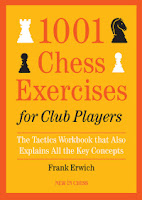Woodpecker 10(0)1 - VII
Woodpeckering my way through 1001 chess puzzles in 2021
Today, if all has gone to plan, will be the day I finish my first Woodpecker Method problem set. 277 positions, six full cycles of solving and review.
I'll take some time to reflect on the experience next week. In the meantime, here are some thoughts on just why Woodpeckering is so demanding.
You’ve probably heard the story about what happened to the guy who invented chess. If not, it goes like this:-
A long time ago in a land far far away, a courtier pleases his king no end by inventing chess.
"How can I reward you?", asks the Big Boss.
"I’m a humble man your majesty. Just a little rice will do."
"How much?"
And at this point our man says that all he wants is rice on each of the squares of the chessboard, but he wants it like this:-
one grain on the first square,
two grains on the second,
four grains on the third,
eight on the fourth
and so on doubling each time all the way from a1 to h8.
"Is that all?" says our King. "No problem."
Accounts differ as to what happens after the King discovers that he’s promised the courtier more rice than exists in his kingdom and all the others put together. Some say the courtier becomes King himself. Others that he ends up getting his head lopped off for being a smart arse.
Anyway.
This is exactly why the Woodpecker Method is so much work. It’s the story of how chess got invented but in reverse.
Halving the amount of time you have to complete a problem set doesn’t sound like a big deal at first. It probably isn’t moving from cycle one to cycle two. A few cycles down the line, though, when you’re down to four days … two days … one day. Well that’s a different story.
If you’re keen on studying chess, you probably won’t have much difficulty starting out with the Woodpecker Method. What you need to think about is how you’re going to manage seven or eight weeks down the line when you’re at the sharp end of things.
As before, there’s no easy answer to this problem. If you think about it in advance, though, you’ve got an awful lot more chance of making it work.
PROGRESS
Set One:
Number of Puzzles: 277
Total Woodpeckering Time: 48 hours 21 minutes
Cycle One: 277 puzzles at 82% accuracy in 22 hours 42 minutes
Cycle Two: 277 puzzles at 84% accuracy in 13 hours 19 minutes
Cycle Three: 277 puzzles at 92% accuracy in 7 hours 53 minutes
Cycle Four: 277 puzzles at 97% accuracy in 2 hours 46 minutes
Cycle Five: 277 puzzles at 99.1% accuracy in 1 hour 41 minutes
Cycle Six: x puzzles at x% accuracy in x hours x minutes
Cycle One Running Totals
Week One: 80 puzzles at 84% accuracy in 6 hours 21 minutes
Week Two: 109 puzzles at 81% accuracy in 11 hours 2 minutes
Week Three: 172 puzzles at 81% accuracy in 15 hours 51 minutes
Week Four: 277 puzzles at 82% accuracy in 22 hours 42 minutes
Cycle Two Running Totals
Week One: 111 puzzles at 89% accuracy in 3 hours 33 minutes.
Week Two: 277 puzzles at 84% accuracy in 13 hours 19 minutes.






UPDATE:
ReplyDeleteThings didn't go to plan. I didn't (and won't) finish the sixth and final cycle of problem set one today. It should happen tomorrow.
I completed "1001 Chess Exercises for Beginners" last summer in one day. It's an incredible amount of work. Having done the 222 easy problems from Woodpecker, the 1001 was much easier, but still, doing 1001 in a day takes a lot of energy. I began work on 1001 Exercises for Club Players but stopped after around 400 problems. Good luck!
ReplyDeletehttps://wondeefore.blogspot.com/2020/07/1001-tactics-odyssey_27.html
Interesting read, Kevin. Thanks for adding the link.
DeleteOut of interest, why did you stop at 400 problems?
I decided I need to work on longer calculation problems and opening work (moreso the positional ideas that stem from my openings). I'm around 1850 lichess classical and I think the basic pattern recognition work I'd been doing via spaced repetition on simpler tactics was taking up a lot more time than it should. In other words, I felt that repeatedly going over, for example 60 "advanced pawn tactics" in the 1001 Exercises for Club Players for three, four, five cycles was eating away at a lot of my time I could be spending on middlegame planning, deeper calculation, etc. Plus, I'd already done a boatload of simple tactics last summer with the first 1001... book so for the moment, I decided to put the ...club players book down and move forward with Yusupov's Orange books. I'm really enjoying the depth I have to go to to solve the problems. I feel that I am getting more out of it because the Yusupov books cover such a broad area of the skills and knowledge in chess.
Delete